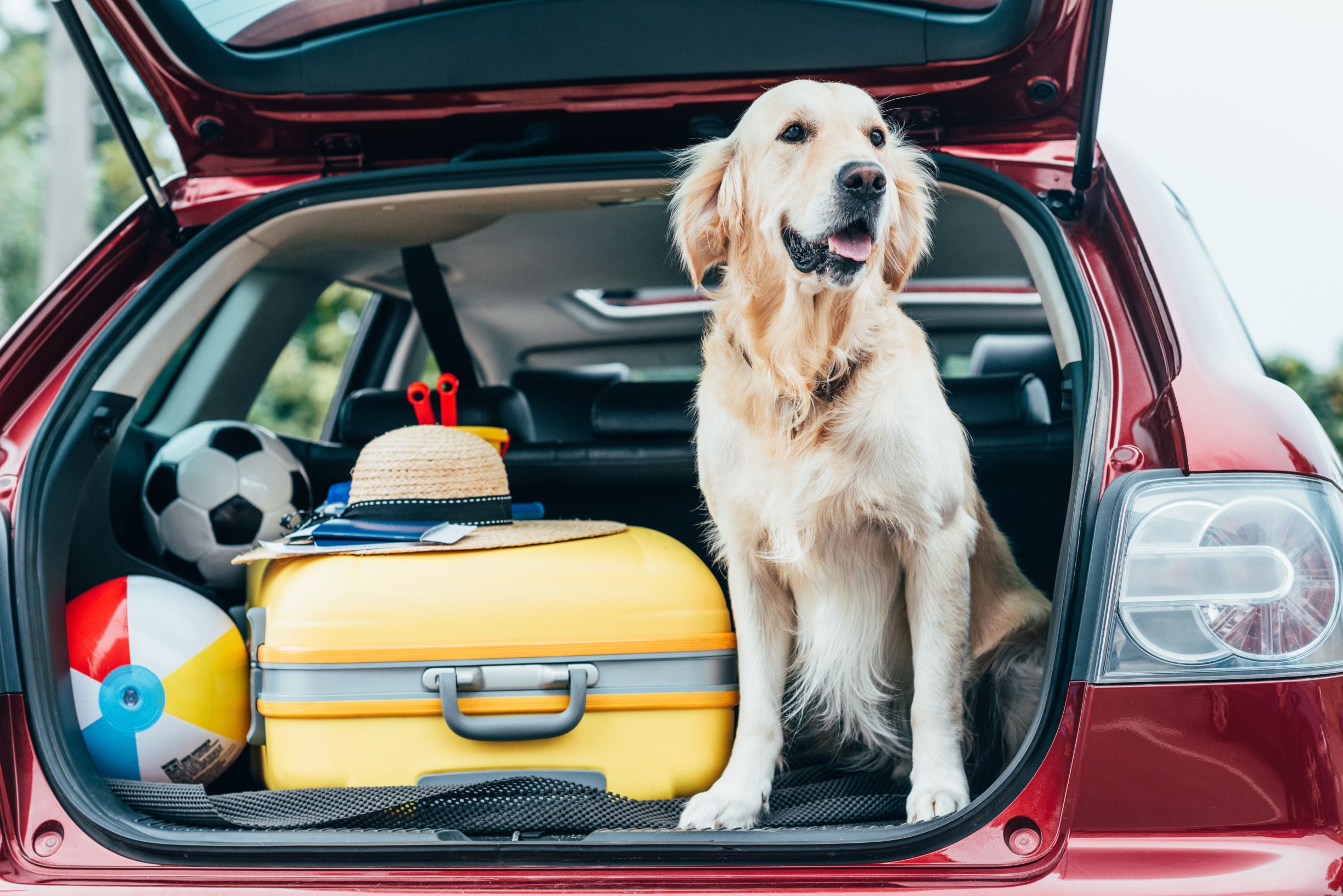Hints and tips to help with dog car sickness
Car sickness is a common problem for puppies and dogs.
Some will never experience it but for others, canine car sickness can be an issue.
With the holiday season approaching you might be planning to take your dog with you on a holiday in the UK, or to Europe, by car.
If you know your dog suffers from travel sickness, the first thing you should do is consult your vet and see what advice they can give you and ask if they think medication might help.
What is the cause of car sickness for dogs?
Motion sickness in dogs is thought to be caused by similar reasons to that in humans. Movement of certain types can alter the balance in the inner ear or other parts of the brain leading to nausea and in some cases vomiting.
Stress can also be a cause of travel sickness for dogs and the result can be distressing for them and for you.
What are the signs of car sickness for dogs?
You might notice your dog panting and slobbering. They might look uncomfortable and be moving around a lot.
Your dog might also start licking their lips and in the worst case they will start to retch.
What are the signs your dog is afraid of the car?
If your dog is afraid of the car and it causes them stress, there will be obvious signs like them pulling away when you approach the vehicle.
They might wee in the car, or soil, and in some cases, they will whimper, bark and shiver.
Dealing with travel sickness
It would be such a shame if our dog missed out on all the adventures that trips in the car can bring. This could be a day trip to the coast or countryside or a holiday at home or on the continent.
However, don’t despair – there are steps you can take to help deal with dogs that get car sick.
- Build up to the big journey with short and gentle trips in the car for your dog to get them used to the environment and the motion.
- Feed them only a light meal a few hours before the journey to prevent an upset stomach.
- In the car ensure you use a well-ventilated crate or pet seat belt to secure the dog safely and reduce motion.
- Open windows slightly to allow fresh air circulation.
- Limit visual stimulation by covering the windows where safe and possible to reduce motion sickness triggers.
- Take frequent stops for toilet breaks and short walks.
- Ensure they have fresh water available.
- Consult your vet in advance of a long journey.
- Ensure you have a probiotic paste on hand for the worst case scenario if they vomit. Pastes like PetExx Stomach Settler can help rebalance the gut bacteria after a bout of doggy sickness.
- Reward calm behaviour with praise.
- Allow your dog recovery time after the journey.
- If your dog is stressed before a journey, consider a natural supplement like PetExx Stress Less.
For more advice on travelling in the car with your dog, this advice from Dogs Trust is excellent.





